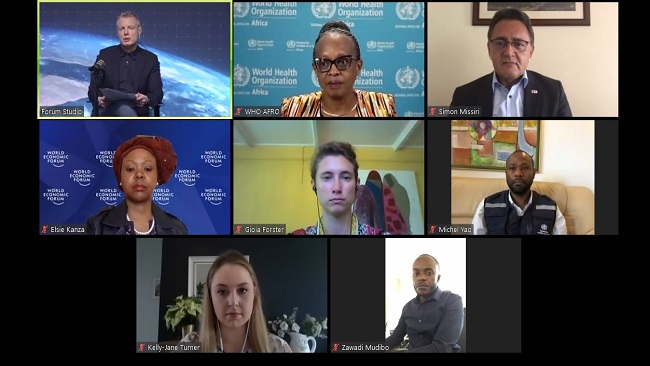Covid-19 in Africa: WHO says Cameroon, South Africa and Algeria account for half the cases
South Africa is into the extension of the national lockdown. Questions remain on the minds of citizens across the continent whether stepped-up measures such as lockdowns have made a difference?
Experts from the World Health Organization (WHO), the International Federation of the Red Cross and Red Crescent Societies (IFRC) and the World Economic Forum on Covid-19 in Africa held a briefing on 16 April.
Dr Matshidiso Moeti, World Health Organization Regional Director for Africa confirmed that there are now 17 000 Covid-19 cases and 900 deaths in Africa to date. South Africa, Algeria and Cameroon account for half of the cases.
When a vaccination becomes available is there protocol set in place to ensure the vulnerable get it first?
“We build on lessons of the past, like Ebola,” said Elsie Kanza, Head of Africa, World Economic Forum. New partnerships were called upon to ensure the safe and effective distribution of vaccines, “It is all about solidarity” which was reiterated by Dr Simon Missiri, Regional Director for Africa, International Federation of Red Cross and Red Crescent Societies (IFRC). “Politicians’ first response is to protect their people but we need solidarity… which we know is difficult to practice.”
Dr Moeti said the WHO Africa is encouraging African countries to get involved in clinical vaccine trials to contribute to the global Covid-19 vaccine effort.
Lockdown and other measures: A balancing act of the health of citizens or the economy
South Africa’s swift methods such as social distancing, the closing of schools and lockdown seem to have slowed down the Covid-19 curve. “Lockdown measures are difficult but this needs to be supported with strong communication,” Dr Moeti added.
It is important that countries who implement measures such as lockdown, do them gradually. This is to minimize the frustrations put on communities.
Kanza expressed concern over the socio-economic impacts of communities in Africa. She said that it is likely that one-third of Africans are likely to lose their jobs. This is due to the many sectors of industry closing such as restaurants and non-essential services as well as those in the informal sector. Dr Moeti confirmed that the WHO Africa budget is $300 million which is worked out over six months.
It is difficult to balance the health or the economy of communities. Dr Missiri explained that non-standard solutions need to be implemented in ‘slum-like areas’ or highly densely populated communities.
“What is more important? Loss of life or economic downturn?” posed Dr Missiri.
Estimation or trajectory of Covid-19 in Africa:
Dr Michel Yao, WHO Emergency Operations Programme Manager, said it is difficult to make a long-time estimation. There are many factors to take into account such as geography or whether public health measures are working to flatten the spread.
Culled from Sandtonchronicle





